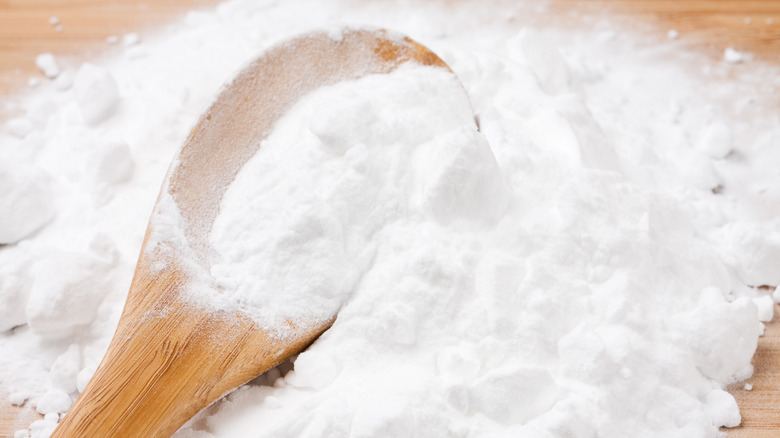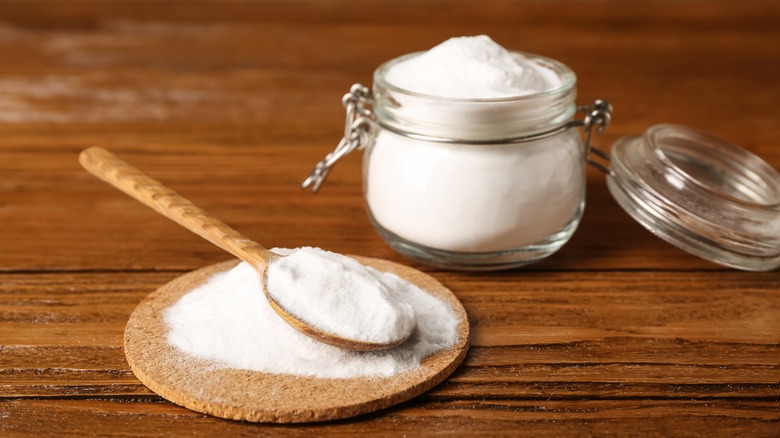The Simple Tip That Tells You If Your Baking Powder Has Expired
If you've ever taken to the kitchen with the ambition of baking a fluffy cake or your favorite buttermilk biscuits only to have your results literally fall flat, there's a good chance that you've made a common baking mistake — using expired baking powder. Once the powder is past its prime, you're likely to end up with dense or misshapen baked goods. The key to preventing this pitfall is to test your baking powder before you use it.
All you need to do is pour a small bit of baking powder into a bowl and add warm water. If the mixture begins to fizz, you're good to go. However, if there's no reaction between the water and the baking powder, it's time to trade it out for a newer container. If it has expired, there's no need to toss it in the trash, though. While it won't do its original job as a leavening agent, you can repurpose it for other household jobs. Make your fridge smell fresh and clean by placing an open box inside to absorb any odors. It will also do the same for shoes that could stand to smell a little better. Or, form a paste with a little water and use it to scrub surfaces in the kitchen or bathroom.
How to keep baking powder fresh longer
Baking powder's shelf life when it hasn't been opened is about six months, but once the container has been unsealed, that reduces by half. A few factors can impact how long it stays fresh — if you combat them, you'll have a better chance of being able to use it when you need it. Like all food, baking powder is affected after coming into contact with air. If the original container has a tight seal, you can use it for long-term storage, but if not, it will need to be transferred to an airtight container.
While heat is another enemy that can degrade baking soda, you won't want to keep it in the refrigerator. The humidity in the fridge is not a friend to the powder and can cause it to clump. Not only does the clumping make it harder to work with, but it can also cause your baked goods to wind up with uneven sections of bitter flavor. To avoid that, keep the leavening agent in a pantry or cabinet that is both cool and dry. Once you've stored your baking powder properly, you'll be all set to use it in all of your baking recipes, but don't sleep on other ways to put it to work. Try using it as part of a rub to make the crispiest chicken wings or mix it with salt to spread on pork belly for a crispy coating, too.


